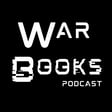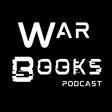
World War II – China & the Birth of the U.S. Special Forces – Stephen R. Platt
Ep 054 – Nonfiction. Historian Stephen R. Platt discusses his new book, “The Raider: The Untold Story of a Renegade Marine and the Birth of U.S. Special Forces in World War II.”
‘The extraordinary life of forgotten World War II hero Evans Carlson, commander of America’s first special forces, secret confidant of FDR, and one of the most controversial officers in the history of the Marine Corps, who dedicated his life to bridging the cultural divide between the United States and China
“He was a gutsy old man.” “A corker,” said another. “You couldn’t find anyone better.” They talked about him in hushed tones. “This Major Carlson,” wrote one of the officers in a letter home, “is one of the finest men I have ever known.”
These were the words of the young Marines training to be among the first U.S. troops to enter the Second World War—and the Major Carlson they spoke of was Evans Carlson, a man of mythical status even before the war that would make him a military legend.
By December of 1941, at the age of forty-five, Carlson had already faced off against Sandinistas in the jungles of Nicaragua and served multiple tours in China, where he embedded with Mao’s Communist forces during the Sino-Japanese War. Inspired by their guerilla tactics and their collaborative spirit—which he’d call “gung ho,” introducing the term to the English language—and driven by his own Emersonian ideals of self-reliance, Carlson would go on to form his renowned Marine Raiders, the progenitors of today’s special operations forces, who fought behind Japanese lines on Makin Island and Guadalcanal, showing Americans a new way to do battle.
In The Raider, Cundill Prize–winning historian Stephen R. Platt gives us the first authoritative account of Carlson’s larger-than-life exploits: the real story, based on years of research including newly discovered diaries and correspondence in English and Chinese, with deep insight into the conflicted idealism about the Chinese Communists that would prove Carlson’s undoing in the McCarthy era.
Tracing the rise and fall of an unlikely American war hero, The Raider is a story of exploration, of cultural (mis)understanding, and of one man’s awakening to the sheer breadth of the world.’
Subscribe to the War Books podcast here:
YouTube: https://www.youtube.com/@warbookspodcast
Apple: https://apple.co/3FP4ULb
Spotify: https://spoti.fi/3kP9scZ
Follow the show here:
Twitter: https://twitter.com/warbookspodcast
Facebook: https://www.facebook.com/warbookspodcast
Instagram: https://www.instagram.com/warbookspodcast/

